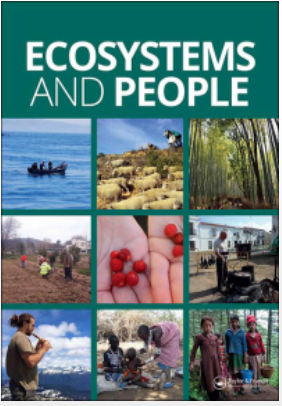Knowledge co-production in the Helge å catchment: a comparative analysis
IF 3.7
Q1 Agricultural and Biological Sciences
引用次数: 4
Abstract
ABSTRACT Addressing sustainability challenges in landscape management requires processes for co-producing usable knowledge together with those who will use that knowledge. Participatory futures methods are powerful tools for attaining such knowledge. The applications of such methods are diverse and understanding the intricacies of the knowledge co-production process is important to further develop these research practices. To improve participatory futures methods and contribute to systematic and critical reflections on methodology, we present a comparative analysis of four research projects that applied participatory futures methods in the same study area. Conducted between 2011 and 2020, these projects aimed to co-produce knowledge about the future provision of ecosystem services in the Helge å catchment area in southern Sweden. For structuring the post-hoc, self-reflexive analysis, we developed a framework dividing the knowledge co-production process into three dimensions: settings, synthesis and diffusion. We based the analysis on documentation from the projects, a two-step questionnaire to each research team, a workshop with co-authors and interviews with key participants. The comparison highlights steps in project decision-making, explicit and implicit assumptions in our respective approaches and how these assumptions informed process design in the projects. Our detailed description of the four knowledge co-production processes points to the importance of flexibility in research design, but also the necessity for researchers and other participants to adapt as the process unfolds.Helge流域知识协同生产的比较分析
摘要应对景观管理中的可持续性挑战需要与使用这些知识的人共同创造可用知识的过程。参与式的未来方法是获得这些知识的有力工具。这些方法的应用多种多样,了解知识协同生产过程的复杂性对于进一步发展这些研究实践很重要。为了改进参与式期货方法,并有助于对方法进行系统和批判性的反思,我们对同一研究领域中应用参与式期货法的四个研究项目进行了比较分析。这些项目于2011年至2020年期间开展,旨在共同编制关于瑞典南部Helgeå集水区未来生态系统服务提供的知识。为了构建事后自反分析,我们开发了一个框架,将知识共同生产过程划分为三个维度:设置、合成和扩散。我们的分析基于项目文件、对每个研究团队的两步问卷、与合著者的研讨会以及对主要参与者的采访。该比较强调了项目决策的步骤、我们各自方法中的明确和隐含假设,以及这些假设如何影响项目中的流程设计。我们对四个知识协同生产过程的详细描述指出了研究设计中灵活性的重要性,但也指出了研究人员和其他参与者在过程展开时适应的必要性。
本文章由计算机程序翻译,如有差异,请以英文原文为准。
求助全文
约1分钟内获得全文
求助全文
来源期刊

Ecosystems and People
Agricultural and Biological Sciences-Ecology, Evolution, Behavior and Systematics
CiteScore
7.80
自引率
11.30%
发文量
40
审稿时长
42 weeks
期刊介绍:
Ecosystems and People is an interdisciplinary journal that addresses how biodiversity and ecosystems underpin human quality of life, and how societal activities and preferences drive changes in ecosystems. Research published in Ecosystems and People addresses human-nature relationships and social-ecological systems in a broad sense. This embraces research on biodiversity, ecosystem services, their contributions to quality of life, implications for equity and justice, and the diverse and rich ways in which people relate to nature.
 求助内容:
求助内容: 应助结果提醒方式:
应助结果提醒方式:


